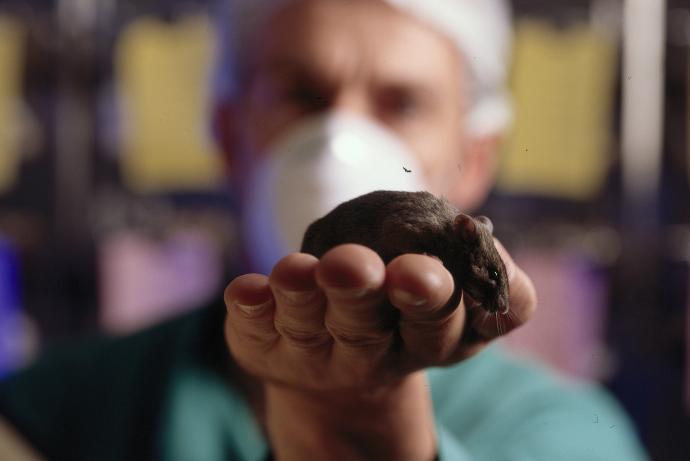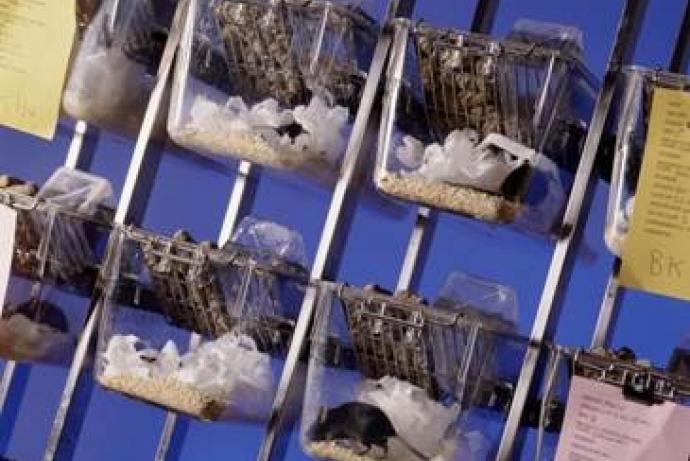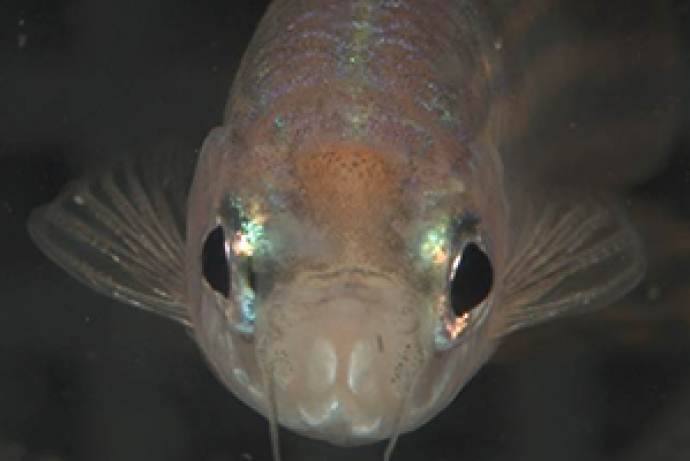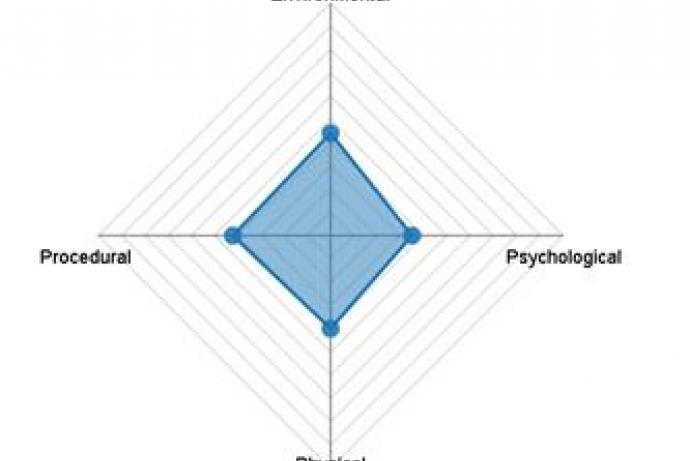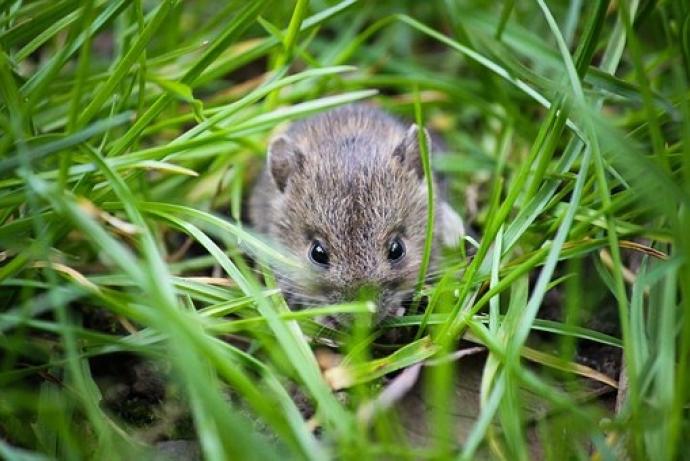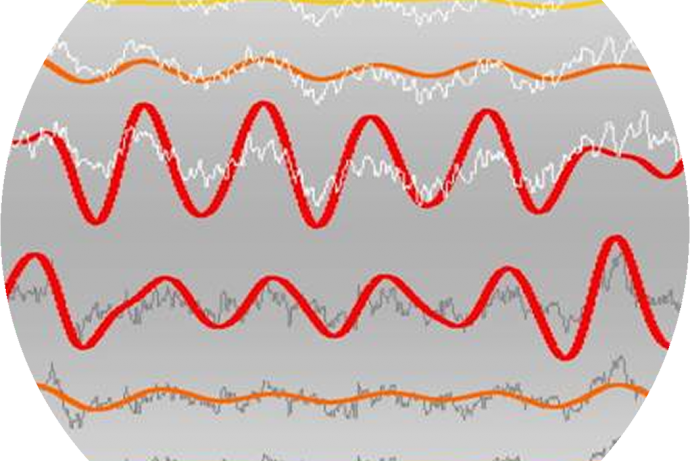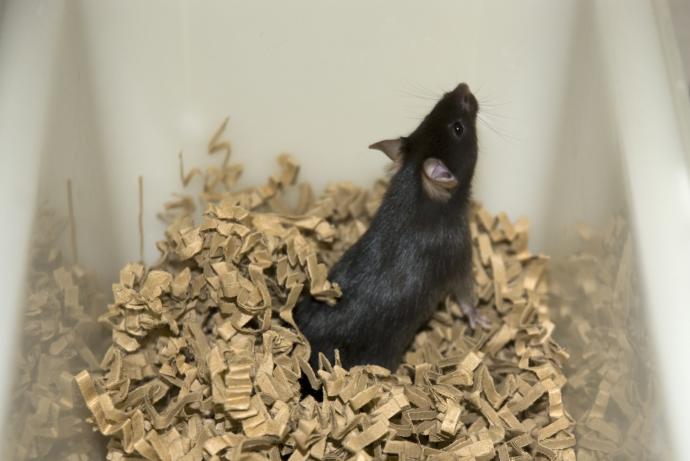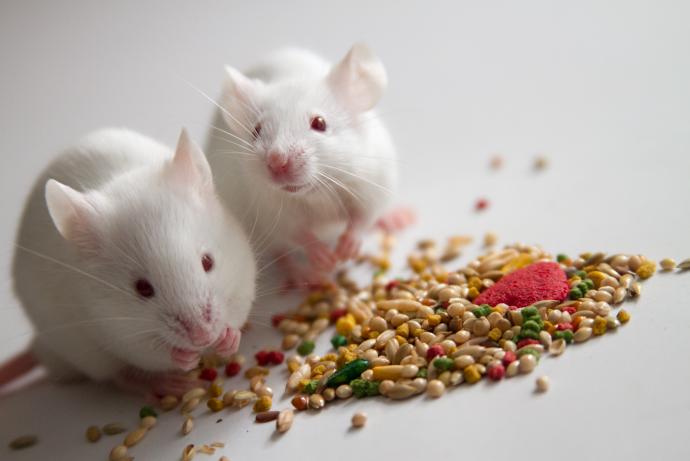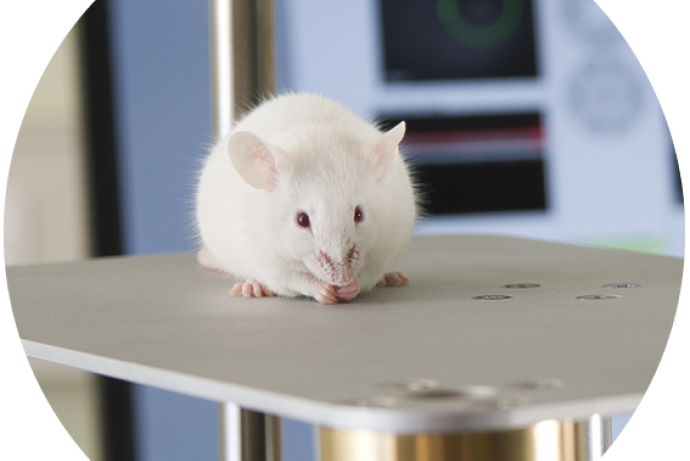Rodent Little Brother
The aim of this Challenge was to develop an automated, minimally-invasive or non-surgical system to assess activity, behaviour and interaction of at least two mice in the cages and setting the animals were reared in.
Actual Analytics Ltd, in collaboration with Challenge Sponsors MRC Harwell, has developed the innovation Home Cage Analyser (HCA) system, which provides 24/7 minimally-invasive, automated recording and analysis of the activity, social interactions and behaviour (eating, drinking and climbing) of individual mice housed socially in their home cage. The system offers major animal welfare and scientific benefits through obtaining data without removing the animals from their social group.
This project and its impacts are featured as a case study in the 2019 CRACK IT Review.
10 years of CRACK IT webinar: Rodent behavioural monitoring... what have you been missing?

In May 2021, we held a webinar to highlight how the Home Cage Analyser, developed through the Rodent Big Brother and Rodent Little Brother Challenges, is being applied across multiple disciplines and sectors to refine rodent behavioural monitoring. It featured presentations by Professor Douglas Armstrong (Co-founder of Actual Analytics) and Dr Sonia Bains (MRC Harwell). The recording of the webinar is now available online, as part of our 10 years of CRACK IT celebrations.
Publication
Bains RS, Wells S, Sillito RR, et al. (2018). Assessing mouse behaviour throughout the light/dark cycle using automated in-cage analysis tools. Journal of neuroscience methods 300: 37-47. doi.org/10.1016/j.jneumeth.2017.04.014.
Public engagement

Dr Sara Wells, MRC Harwell, spoke about the Rodent Little Brother Challenge at the Pint of Science event in Oxford.
Publication
Bains RS, Cater HL, Sillito RR, et al. (2016). Analysis of individual mouse activity in group housed animals of different inbred strains using a novel automated home cage analysis system. Frontiers in behavioral neuroscience 10: 106. doi.org/10.3389/fnbeh.2016.00106.
Webinar
Inside Scientific webinar
24/7 Automated Behavior Tracking for Rodent Safety Pharmacology and Phenotype.
Product launched
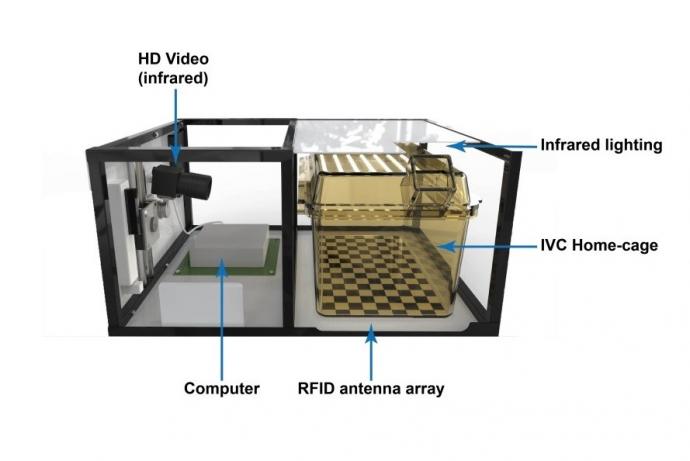
ActualHCATM is a 24/7 automated monitoring system for socially grouped animals in their home-cages.
Challenge completed
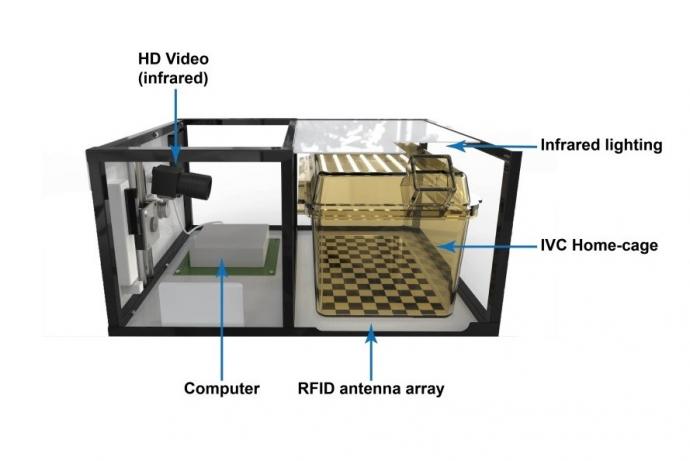
Actual Analytics, in collaboration with Challenge Sponsors MRC Harwell, has developed the innovation Home Cage Analyser (HCA) system, which provides 24/7 minimally-invasive, automated recording and analysis of the activity, social interactions and behaviour (eating, drinking and climbing) of individual mice housed socially in their home cage. The system offers major animal welfare and scientific benefits through obtaining data without removing the animals from their social group.
Phase 2 awarded
A team led by Professor Douglas Armstrong, Actual Analytics, has been awarded £500k to deliver the project: A Brave New Homecage.
Phase 1 awarded
Three Phase 1 Awards were made to project teams led by:
- Professor Douglas Armstrong, Actual Analytics, £100,000.
- Dr Valter Tucci, Istituto Italiano di Tecnologia, £99,150.
- Professor York Winter, PhenoSys GmbH, £100,000.
Challenge launched
Sponsored by MRC Harwell, the Rodent Little Brother Challenge aims to develop an automated, minimally-invasive or non-surgical system to assess activity, behaviour and interaction of at least two mice in the cages and setting the animals were reared in.
Background
Many common nervous system disorders, often the subject of intense research using laboratory animals, are associated with behavioural, locomotor and social deficits in humans. Several of these express multiple phenotypes that are currently assessed using batteries of mouse tests. For example, Huntington’s disease models express locomotor and learning deficits whereas mouse mutants in genes associated with schizophrenia often exhibit hyperactivity with cognitive disturbances. In order to measure these characteristics systematically and assess the validity of animal models a number of developments have led to a reassessment of how neurological and behavioural phenotyping are carried out. These include:
- Specialist cages for tracking activity.
- Phenotyping equipment allowing one to measure a range of behavioural and physical attributes e.g. social interactions, dominance, anxiety.
- Advanced software systems and algorithms for data interpretation.
Much of the sophisticated equipment and software which is available requires animals (mostly mice) to be placed in either a novel environment or single housing which may both compromise and confound model validation in addition to being detrimental to animal welfare.
Novel environment
Many current tests involve removing animals from their usual environment and placing them in a piece of equipment to monitor their activity e.g. the rotarod to measure locomotion. Recently, much publicity has been given to available ‘home cage’ systems. However, many of those available on the market are not the same as the caging animals are reared in. Mice have to be removed from their true home cage and are often placed in unfamiliar cages in different rooms, with different enrichment regimes and handlers.
Single housing
Almost none of the equipment available on the market allows the simultaneous tracking of multiple animals and requires mice to be singly housed for the period of the test. Social isolation (singly housing) has been reported to affect mouse behaviours. Moreover, it is difficult, impractical and disruptive to rehouse male mice into groups after an experiment.
3Rs benefits
The development of an automated, non-surgical system will impact on refinement and reduction of studies using mouse models of nervous system disorders. These are disease models where pain, suffering and lasting harm can be difficult to assess and where earlier humane endpoints and interventions are needed. Additionally, animals would not need to be moved to unfamiliar cages or be singly housed for testing. Fewer animals would be needed because less variable data would be obtained from individuals.
The caging system used by MRC Harwell, the sponsor of this Challenge, is the most common in the UK and represents large potential for uptake of the solution. More broadly, the technology could impact in other fields e.g. metabolism, where mechanisms leading to weight changes (altered activity or food intake) could be investigated.
Phase 1 winners
Project teams led by:
- Professor Douglas Armstrong, Actual Analytics, £100,000.
- Dr Valter Tucci, Istituto Italiano di Tecnologia, £99,150.
- Professor York Winter, PhenoSys GmbH, £100,000.
Phase 2 winner
Project team led by:
Full Challenge information
Actual Analytics, in collaboration with Challenge Sponsors MRC Harwell, has developed the innovation Home Cage Analyser (HCA) system, which provides 24/7 minimally-invasive, automated recording and analysis of the activity, social interactions and behaviour (eating, drinking and climbing) of individual mice housed socially in their home cage. The system offers major animal welfare and scientific benefits through obtaining data without removing the animals from their social group.
The system is compatible with standard IVC home cages. Each animal is tagged with an RFID chip to record location and identity using a 2D array of RFID readers that sit underneath the cage. The cage is illuminated by infrared LED lighting and a side-view HD camera captures recordings of mouse behaviour. The video and baseplate data is processed using a small computer and trained software detect specific behaviours.

Figure 1. An illustration of the Home Cage Analysis system with the key components highlighted.
Work at MRC Harwell using the HCA system to study three commonly used mice strains has revealed novel insights into mouse social interactions, behaviour during the nocturnal period and differences in the activity of individually and group housed animals (Bains et al., 2016). It has also provided new data on the effects of genetic background on individual and group behaviour which could influence the further interpretation of studies using these mice.
Actual Analytics has also developed a HCA system for rats through the Rodent Big Brother CRACK IT Challenge.
The HCA system for mice and rats is commercially available to purchase from Actual Analytics. For more information about the HCA system, please visit the Actual Analytics website or alternatively contact Actual Analytics here.
The Home Cage Analyzer for rodent behavioural research
The Actual Analytics Home Cage Analyzer (ActualHCA) represents a significant and exciting breakthrough in the technology available for rodent behavioural research. In the past, measuring most behaviours in rodents meant they had to be housed singly, in bespoke arenas. Analysis was limited to the designated hours of observation, typically during the day, meaning researchers obtained little more than an artificial snapshot of the rodents’ activity and behaviour.
With ActualHCATM, it is possible to gather data on a 24/7 basis in the least invasive manner possible, while the rodents remain in their normal home cage. The system provides automated analysis of discrete behaviours, body temperature and locomotor activity tagged to each individual animal within their normal social group. Live analysis of activity and temperature patterns can be used to trigger custom defined welfare alerts or experimental end-points.
Testing within the home cage is suitable for a number of interest areas, including but not limited to:
- Detecting and assessing safety/toxicological effects of candidate drugs.
- Behavioural phenotyping of genetically altered animals.
- Longitudinal analysis of animal cohorts across many months.
- Drug efficacy studies.
- Studies of circadian rhythms.
- Studies of social interactions.
3Rs benefits
Reduction: The quantity of longitudinal data gathered provides additional statistical power, meaning fewer animals are required. Multiple endpoints can be collected concurrently using a single group of animals (e.g. locomotion and temperature in the same group) reducing total numbers.
Refinement: The behavioural data collected is entirely non-invasive and based on identifying individual behaviour in the home cage and does not require social isolation of the animals. Remote observation capabilities facilitate enhanced welfare monitoring. Live data analytics can flag potential welfare issues in real time.
Features



Access the technology
Find out more about this product and how to access it on the Actual Analytics website.
